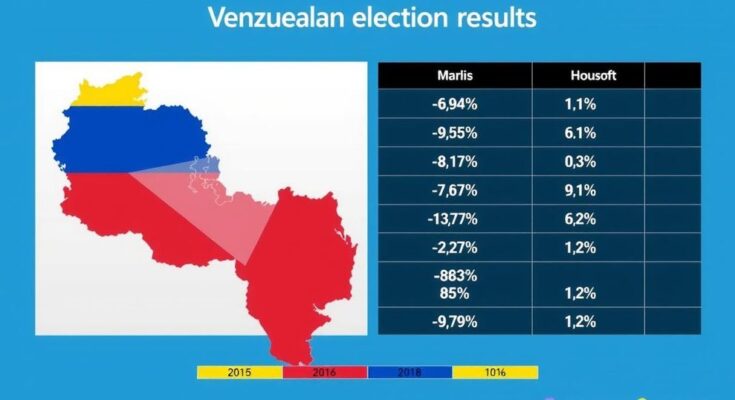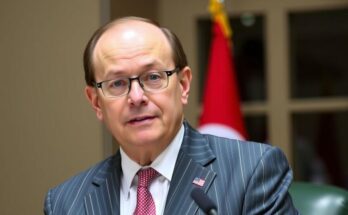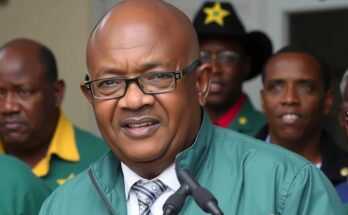The 2024 Venezuelan presidential election led to conflicting claims of victory by Nicolás Maduro and Edmundo González Urrutia, with allegations of electoral fraud rising from the opposition. The CNE reported Maduro’s victory, while the PUD presented data indicating González’s landslide win. International reactions have prompted inquiries into the electoral process, as Maduro readies for his third term amid growing conflict and a United Nations investigation into the election’s legitimacy.
The aftermath of the July 2024 Venezuelan presidential election saw both Nicolás Maduro and opposition leader Edmundo González Urrutia claim victory. The National Electoral Council (CNE) backed Maduro’s assertion of a 51 percent vote share, while accusations from opposition factions alleged electoral fraud. This election came after the barred opposition figure María Corina Machado endorsed González Urrutia as her surrogate candidate. Reports from the Democratic Unitary Platform (PUD) contradicted the CNE’s claims, presenting data suggesting González won by a significant margin of approximately 30 percent.
International condemnation followed, with U.S. Secretary of State Antony J. Blinken denouncing the election’s legitimacy, stating that the CNE’s actions were flawed and lacking credible evidence. In light of these events, the U.S. recognized González Urrutia as the rightful president-elect. Compounding the crisis, Maduro’s government issued an arrest warrant for González Urrutia, forcing him into exile in Spain.
As Maduro prepared for his third inauguration on October 16, 2024, Machado publicly stated her conviction that González would assume the presidency on January 10, 2025, should citizen actions favor a transition of power. Amidst pressures from foreign entities to disclose voting records, the United Nations announced an investigation into the alleged electoral misconduct, responding to petitions from Venezuelan citizens. As political tensions escalate, the future direction of Venezuelan governance remains uncertain, particularly amidst fluctuating international relations.
The 2024 Venezuelan elections unfolded against a backdrop of political instability and allegations of government manipulation. Nicolás Maduro, facing significant opposition, sought to reaffirm his presidency while the opposition coalition spearheaded by Edmundo González Urrutia aimed for reform and a deviation from the prevailing Chavista rule. The barring of key opposition figure María Corina Machado from running against Maduro intensified the sense of urgency among Venezuelan citizens seeking change. Despite international scrutiny and claims of electoral fraud, Maduro’s regime has fortified its position with the support of certain foreign powers, further complicating the political landscape in Venezuela.
The July 2024 elections in Venezuela have exacerbated existing tensions, as Nicolás Maduro claims victory while opposition factions contest the legitimacy of these results. The situation is complicated by international recognition of González Urrutia as president-elect in light of alleged fraud. With Maduro signaling a determination to remain in power and the potential for escalating dissent, the political future remains precarious. Pressure for transparency increases as citizens and foreign governments urge the release of voting records while the UN investigates alleged electoral fraud. Ultimately, the inauguration of the next president is set for January 10, 2025, with uncertainty surrounding the legitimacy of the transition.
Original Source: dailycollegian.com




